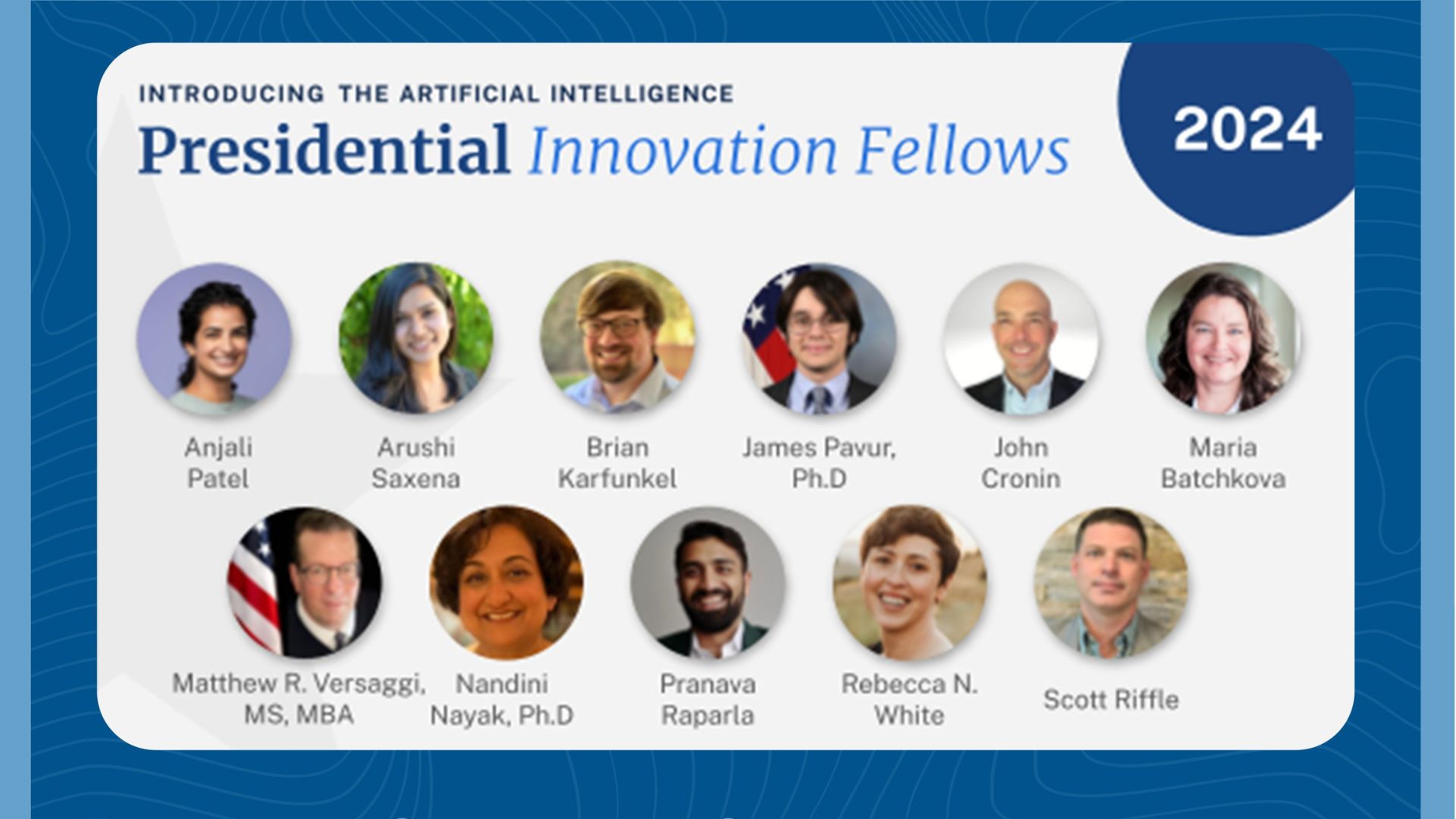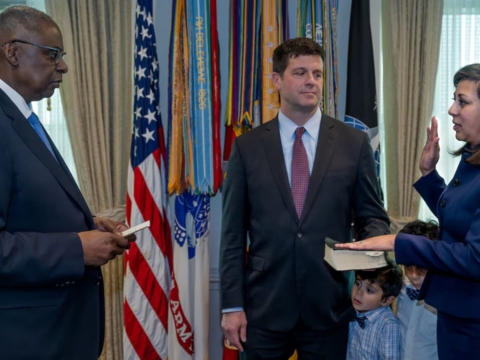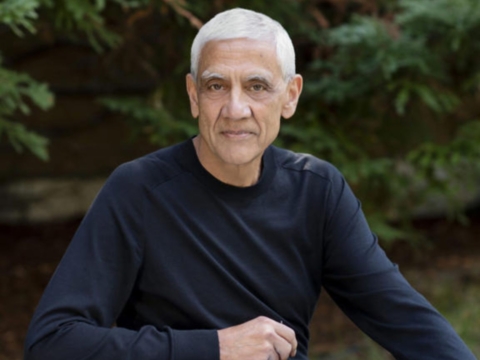WASHINGTON (Diya TV) —
The General Services Administration (GSA) has introduced its second class of Presidential Innovation Fellows (PIF) for 2024, marking the first cohort exclusively centered on Artificial Intelligence (AI). This launch aligns with the Executive Order on the Safe, Secure, and Trustworthy Development and Use of Artificial Intelligence, which identifies the PIF program as a vital federal talent pipeline to attract top AI talent into government roles.
The AI-focused cohort comprises 11 experts hailing from leading tech companies, startups, and organizations nationwide. These fellows will embark on a yearlong civil service tour, embedded within eight federal agencies to address government-wide AI needs. Their projects will include maximizing AI’s potential to enhance justice access while minimizing consumer harm risks and using data and AI to improve the electric grid infrastructure, ensuring clean, affordable, reliable, resilient, and secure electric power for all Americans.
“We’re thrilled to welcome a technologist through the PIF program to advance DOE’s transformative work at the intersection of AI and energy,” said Helena Fu, Director of the Department of Energy’s Office of Critical and Emerging Technologies. “The fellow will help propel our VoltAIc Initiative, building AI-powered tools to streamline siting and permitting, accelerating the deployment of clean energy infrastructure.”
Dominic Mancini, Deputy Administrator of the Office of Information and Regulatory Affairs in the Office of Management and Budget, expressed his enthusiasm, stating, “We look forward to the innovative ideas and expertise the PIFs will bring on how to maximize AI’s benefits while mitigating potential risks. Their collaboration with the agencies exemplifies the society-wide effort required for the responsible use of AI.”
GSA’s Technology Transformation Services (TTS) is bringing unprecedented tech talent into government through the PIF program and the U.S. Digital Corps. Over 2,500 people applied, and TTS plans to hire over 100 technologists in 2024, including more than 200 fellows, with 120 specializing in AI and AI-enabling roles.
“All our fellows contribute significantly to technology innovation and modernization across government,” said GSA Administrator Robin Carnahan. “This AI-focused cohort will align with the Executive Order on AI, harnessing this new technology’s benefits, mitigating risks, and ensuring better service delivery for Americans.”
PIFs serve as strategic senior advisors to executive-level leaders and their teams, providing crucial support in how the government delivers services to the public. Since its inception in 2012, the program has recruited over 260 fellows who have worked at more than 50 agencies, shaping and leading initiatives that address pressing agency challenges.
Former Presidential Innovation Fellow Olivia Zhu, now Assistant Director for AI Policy at the White House Office of Science and Technology Policy, shared her experience: “I’ve been able to apply my experience as a technologist to shape the nation’s AI policy, including through the Biden-Harris Administration’s AI Executive Order. The PIF program helped me transition from the tech sector into government, and I look forward to seeing more technologists join public service.”
The new fellows and their respective agencies are:
- Maria Botchkova, U.S. Department of Justice
- John Cronin, Department of Defense
- Brian Karfunkel, U.S. Department of Justice
- Nandini Nayak, Ph.D., Federal Housing Finance Agency
- Anjali Patel, Equal Employment Opportunity Commission
- James Pavur, Ph.D., U.S. Department of State
- Pranava Raparla, Department of Energy
- Scott Riffle, Department of Defense
- Arushi Saxena, Office of Management and Budget
- Matthew R. Versaggi, MS, MBA, Center for Medicare & Medicaid Services
- Rebecca N. White, U.S. Department of Justice
“The breakthroughs in computing and AI are exciting and substantively different from prior tech revolutions,” said Presidential Innovation Fellow Dr. James Pavur. “Government is where technologists can help these developments bring equitable and safe benefits to all people.”
This is the second PIF cohort this year. Previous cohorts had a broader technology focus, addressing various challenges such as reducing greenhouse gas emissions and improving national nutrition programs. This cohort is unique in its exclusive focus on AI, reflecting the growing importance and potential of this technology in public service.




